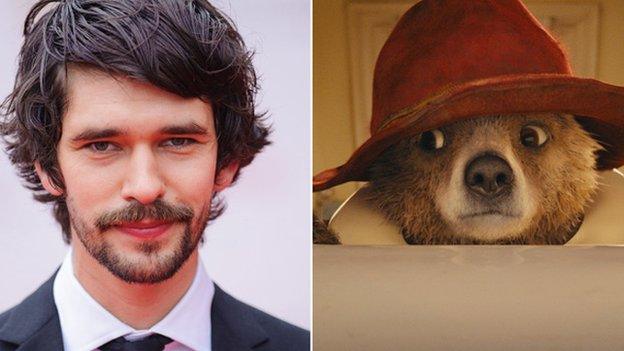This Is Going To Hurt: Ben Whishaw on a best seller, Bond and a Bear
- Published
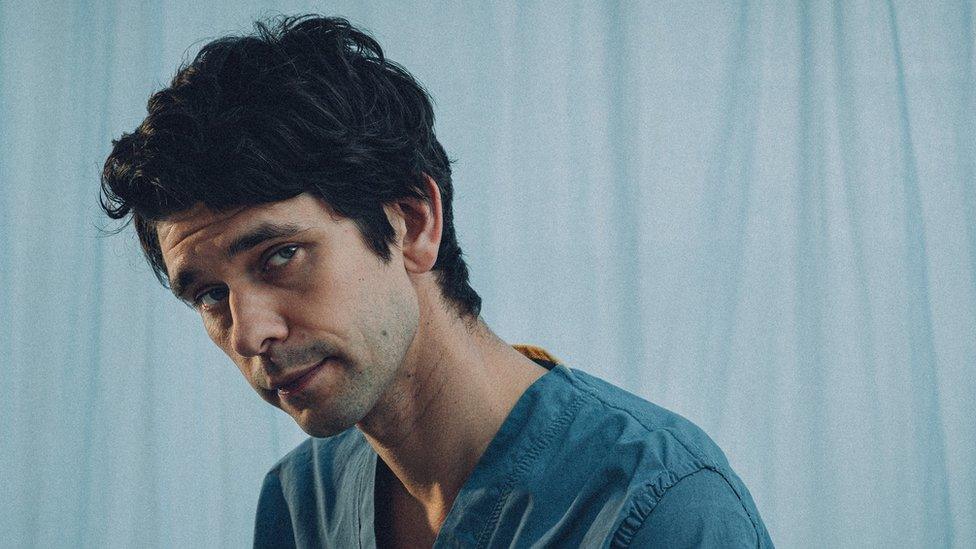
Ben Whishaw has also played Q in the last three James Bond films and is the voice of Paddington Bear
Ben Whishaw has just rebooted his computer. The Bafta, Emmy and Golden Globe winner is having sound problems.
"Hello. Is that any better?" he asks hopefully, but still sounds like someone gargling in a submarine.
The 41-year-old is known for roles ranging from Q in the last three James Bond films to the voice of Paddington Bear.
He has joined me online to talk about his new BBC One series This Is Going to Hurt, a seven-part adaptation of Adam Kay's wildly successful book of the same name, about his experiences of being a junior doctor on an NHS labour ward.
Published in 2017, it shone a light on the long hours and life and death decisions medics must make while seriously sleep deprived. It also made people laugh and went on to sell more than 1.5 million copies.
Unfortunately, the thing that is "really going to hurt" during this conversation is my ears, so rotten is his internet connection. The interview is also meant for broadcast, so Whishaw kindly agrees to record his end of the chat on his phone so the audio is better quality and send it over afterwards.
The doctor is finally ready to see me.
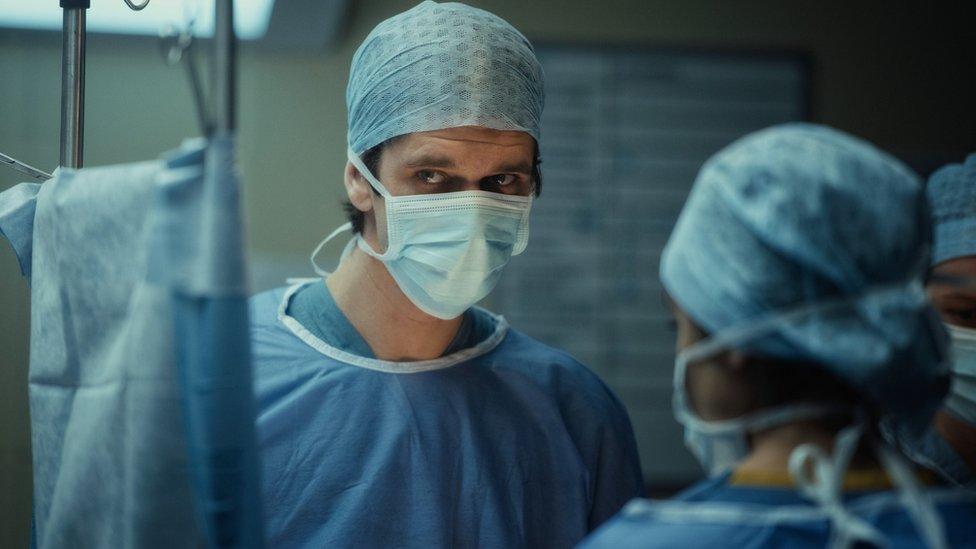
The show had doctors acting as medical consultants during filming, to make it as accurate as possible
"The book was incredibly funny," is Whishaw's review of Kay's best-seller. "Incredibly kind of honest and then finally, absolutely devastating. And to such a degree, you wonder how anyone really is able to do it and sustain it," he says, in awe of what junior doctors go through.
Kay, who quit as a doctor in 2010, has adapted and produced this series. However, the actor only met him twice before shooting started, with Covid-19 playing its part.
"I felt and I actually still feel incredibly shy around Adam," Whishaw admits. "On the one hand, he's someone I don't know that well, but then I've done this very kind of intimate portrayal of him and his life, so it still feels quite strange to me."
Whishaw, who describes himself as "not scientific in the least", was helped on set by three "amazing doctors", who acted as consultants for the show.
Prosthetic body parts
"They were there every day and would come from a shift direct to the film set and tell us how what we were filming that day would work.
"We practised on prosthetic body parts. The doctors would say, 'You need to do this. Put your hand down. Feel it this way.' It was amazingly helpful."
Would the prosthetic dummies have survived these operations?
"Well, I thought I was quite good," the actor laughs. "And the doctors said that I wasn't bad either. But obviously it's a big difference to transfer from a prosthetic body to a real one. Not a lot in common really between the two."
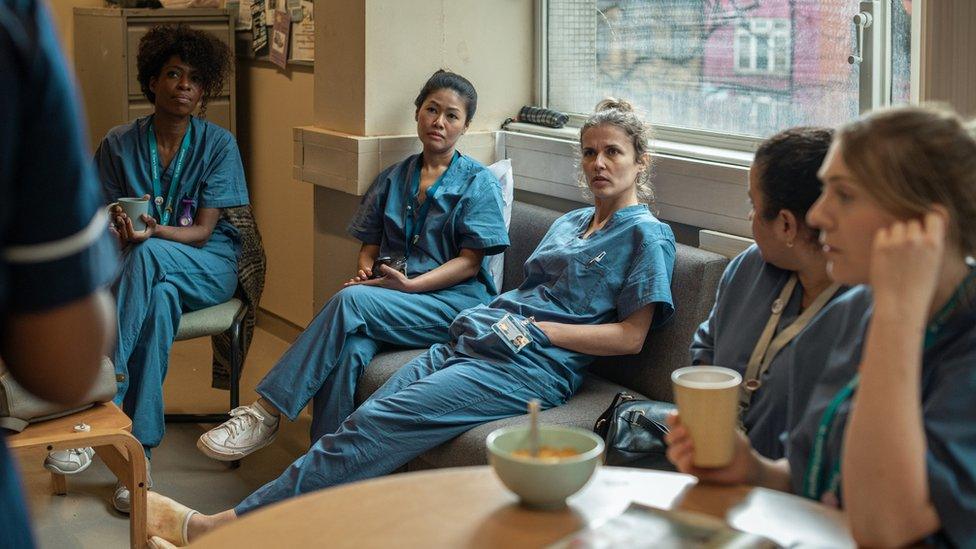
The show portrays hospital life and the impact it has on staff
To find out what real-life junior doctors made of the programme, we enlisted friends Abimbola Ogunseyila, from Nottingham University Hospital, and Sophie-Golda Reginald, from Queen's Medical Centre, Nottingham, to watch the first episode.
"I absolutely enjoyed it," was Ogunseyila's verdict, praising the show for the way it "humanises being a doctor" and "accurately depicts the reality of being a junior doctor and the impact of the role on our personal lives which subsequently affects our overall wellbeing".
"It was very funny," enthuses Reginald, saying it was "funny more because there was a lot of things I could relate to".
"The initial scene where he had blood all over him, that literally reminds me of one of my first shifts in the A&E department, where I did end up with patient's urine all over me," she added. "So immediately I found that absolutely hilarious."
Reginald believes it will help non-medic friends understand what she goes through. "It paints a really good picture of the job in terms of how it can be rewarding when you see patients getting better, and you're getting to bring a new life into the world or saving lives at times.
"But it also shows the sides where it can be really emotional and we do have losses and we are humans at the end of the day, and make mistakes and feel lost and sad."
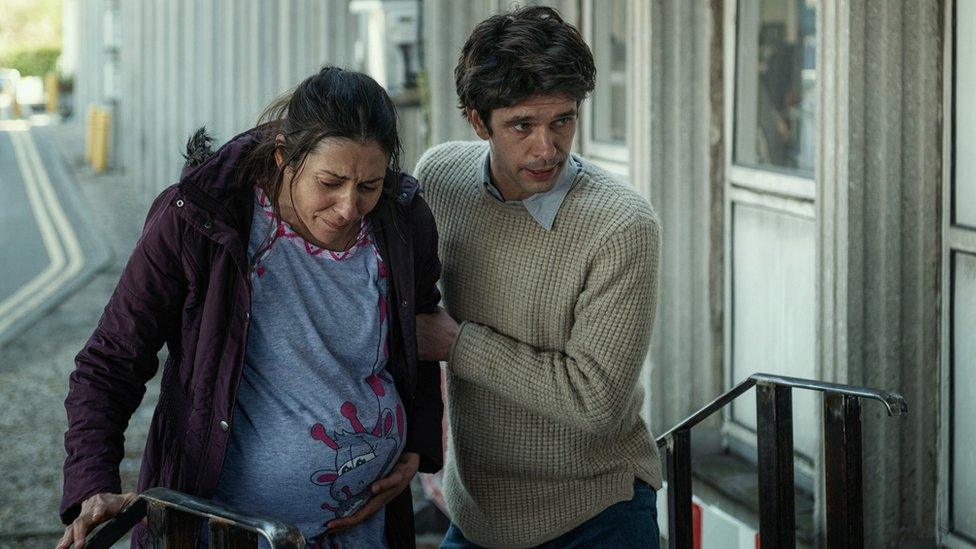
Real-life junior doctors believe the show will help non-medic friends understand what they go through
Both plan to watch the rest of the series, between shifts.
Back to Ben Whishaw, and a switch of topic from the National Health Service to Her Majesty's Secret Service.
No Time To Die was the biggest film at the UK box office in 2021 - after a Covid-enforced delay of almost 18 months. "It meant so much," he says of the reception the movie received. "I am crazy about the cinema. It's one of my favourite things to do. I'd really missed it."
That film was Daniel Craig's final Bond outing, but it turns out the rest of the cast have not been told whether they will return.
"I have absolutely no idea. I know nothing. They are incredibly tight-lipped about everything really," Whishaw explains before looking up, having a think and adding: "I have a suspicion I won't be coming back.
"I think that they're probably starting all over again. And that might be the right thing. But of course, but I don't know for certain."
By starting all over again, does he mean a 1960s-set reboot?
"Could be, couldn't it? I mean, I think there's so many options for them. And I am not privy to any of the discussion at all. So we'll see."
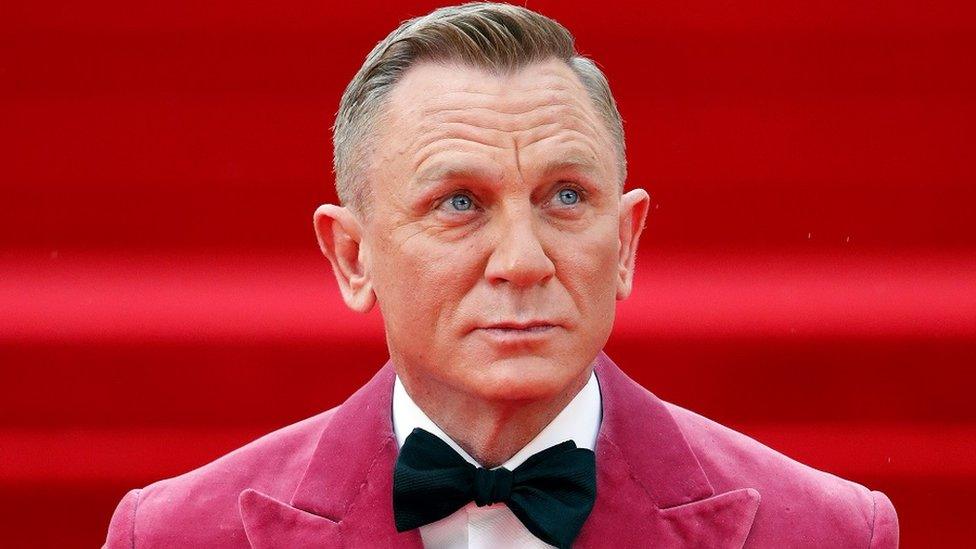
Daniel Craig has left the Bond franchise but Whishaw is not sure if he is too...
He won't be drawn on who the next Bond should be, pointing out that he may still have to work with them. And when it comes to the year's other big bit of British casting, he may have just played a doctor, but he doesn't want to be The Doctor and replace Jodie Whittaker in Dr Who.
"I feel it's not for me to do that role. It's not the same of course, but it's a little bit Q-like, and I feel like it needs to be somebody more unexpected, something from left field. That's what I would appreciate as a viewer."
One thing Whishaw can confirm is that Paddington 3 is happening, with production expected to start by the end of the year. One top bit of advice, if you are ever with children and see him - do not bother trying to explain that he is the bear.
"It's very disappointing. Occasionally a parent will point out me to a child and I can see the bafflement on their faces, because how can I possibly be Paddington?
"It doesn't make any sense to them. And to try to explain that I'm the voice of Paddington is even more confusing for their minds. Bless them."
With that the interview is over. All that remains is for Ben Wishaw to send over his recording, with his voice in quality, so it can be used on TV and radio.
One problem - the man who plays technology and gadget expert Q has failed to press record.
Ouch. That really did hurt.
This Is Going to Hurt is on BBC One on Tuesday 8 February at 21:00 GMT, with all seven episodes landing on the iPlayer at that time.
Related topics
- Published16 December 2021
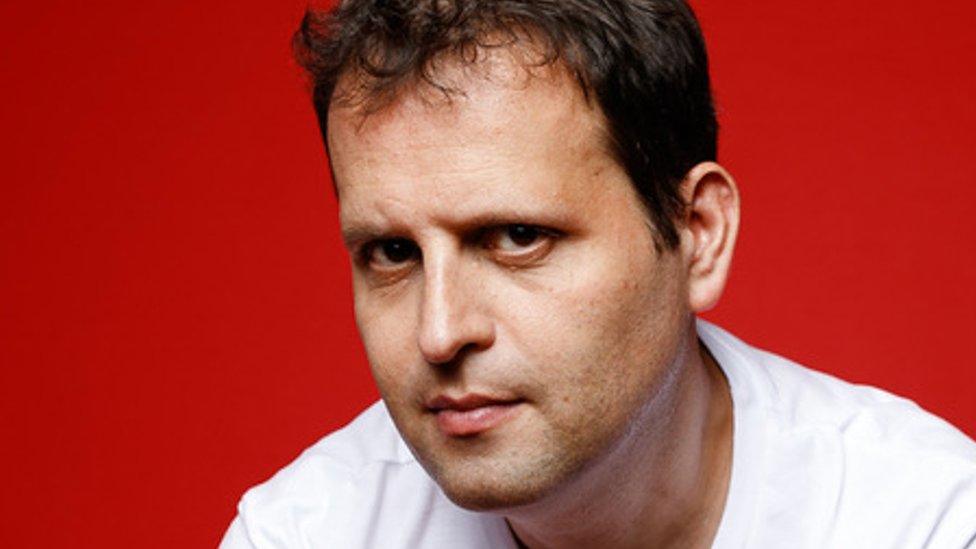
- Published5 October 2021
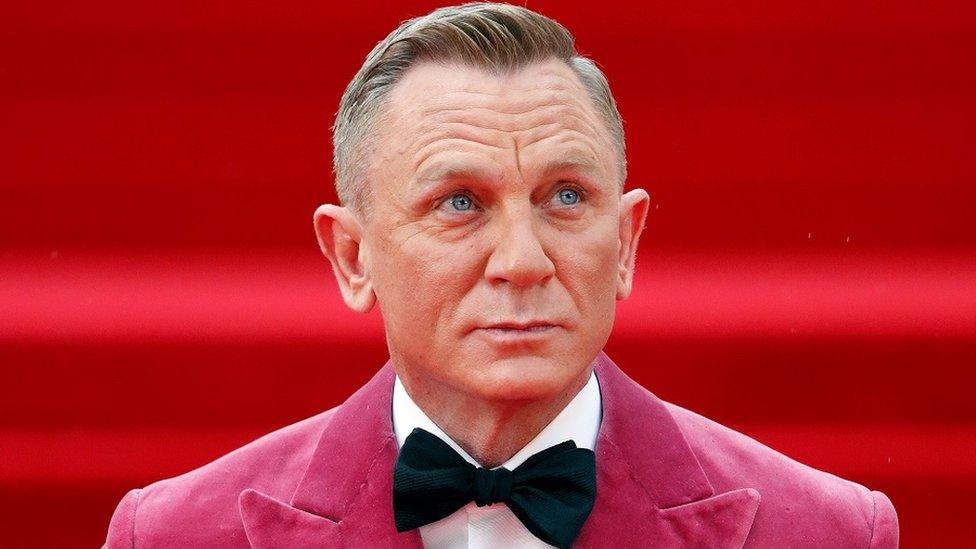
- Published14 February 2019
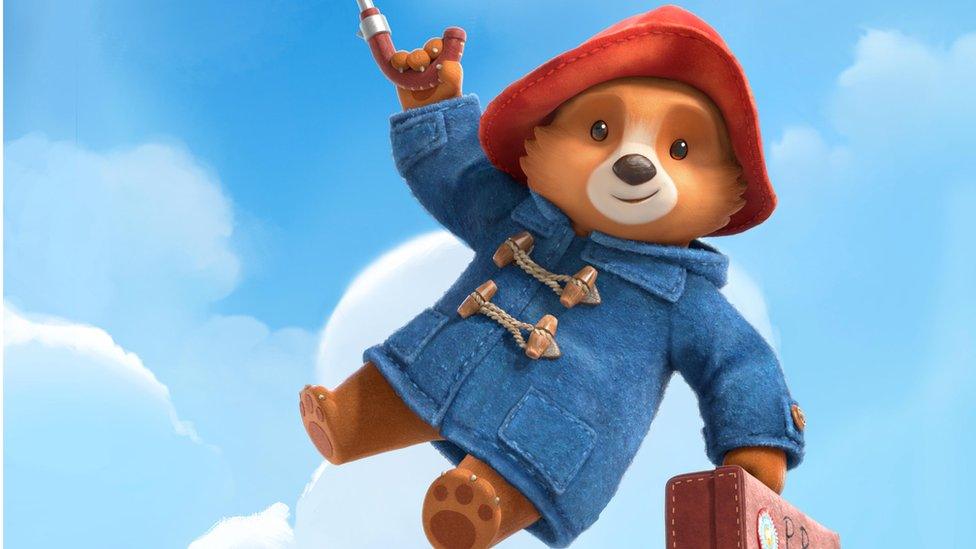
- Published18 July 2014
